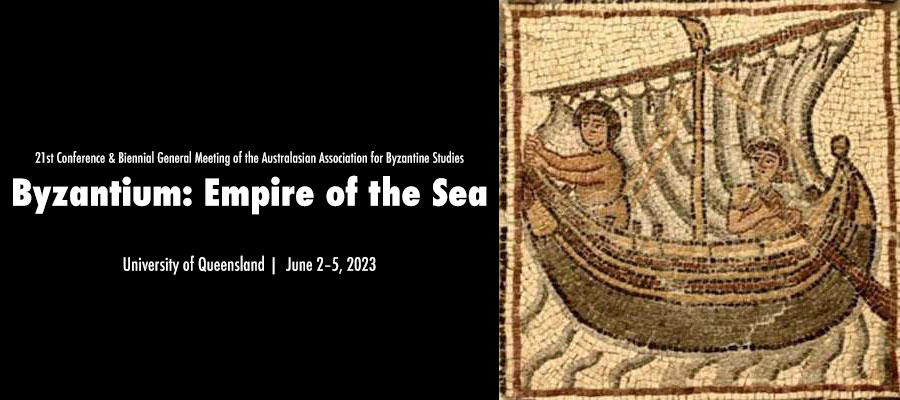Byzantium: Empire of the Sea, 21st Conference & Biennial General Meeting of the Australasian Association for Byzantine Studies, University of Queensland, St Lucia Campus, Brisbane, June 2–5, 2023
Byzantium was an empire on, and of, the ancient Mediterranean and Black Seas. The ‘late’ Romans inherited a political, military and cultural system centred on waterborne trade and interconnections. Constantine’s new capital city swiftly replaced Rome as the Mediterranean entrepot of goods from east and west, building on the foundations of the connections and harbours of Byzantium, the ideal Greek emporium. We ask for papers to engage with the conference topic on any level of analysis, from history and hagiography, to letters, art, iconography or harbour architecture. Papers are welcome to consider the origins of Byzantium in the Roman empire, or as a Greek colony; to study some aspect of the functioning Roman empire centred on Constantinople from the 4th to 15th centuries; or to explore the legacy of Byzantium in the Black Sea, on the Aegean islands, in the Italian maritime republics, or along the rivers, bays and coasts of the north, west and south.
Possible paper topics might include:
- Naval warfare, Greek fire, galleys, sieges of Constantinople
- Harbours of Byzantium, trade goods, merchants, ship-building
- Seafaring traditions, St Nicholas, the Panagia, fishermen, festivals
- Metaphors in sermons, hymns etc. drawn from the sea
- Venice, Genoa, Pisa, Italians, immigrants, explorers
- Islands, e.g. Proconnesus for marble, Malta also for exiles
- Relations with the Kievan Rus, the Varangian Guard, rivers of the north
- Relations with Arabs, Jews, Egyptians, Church of the East, Slavs, etc.
- Products of the sea: fish, shellfish, shells, dyes, seabirds
- Positive and negative associations of the sea in Greek literature
- Pirates, slaves, hostages, crusaders, military orders
- Travel conditions, letter carriers, the ‘Post’ system, maps, cartography …
Convenor: Dr Amelia R. Brown (UQ)
